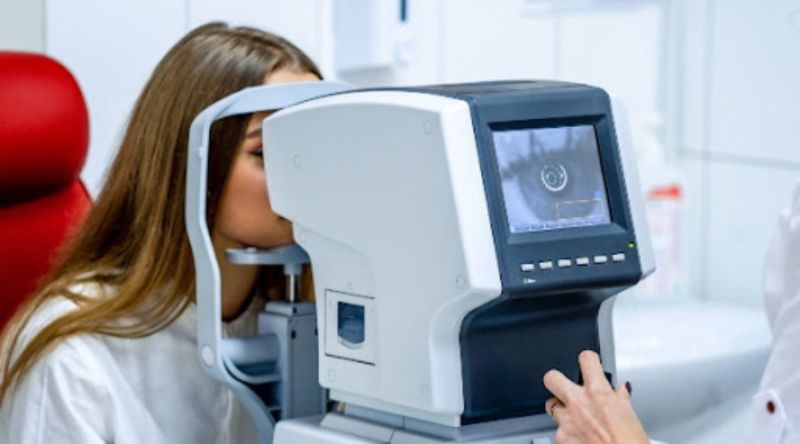
You don’t need to wait until you have vision problems before booking an appointment with an ophthalmologist. In fact, it’s a good idea to maintain regular checkups to catch the earliest signs of eye disease.
You don’t want to take any chances of losing your vision. This is why it’s smart to know when you need to visit an eye doctor. Here are a few signs that you might need to book an appointment with a specialist:
Sudden changes in vision can happen for a variety of reasons. If you notice that your eyesight is changing, it’s essential to schedule an eye exam to determine the diagnosis.
Also, pay attention to symptoms that are causing difficulty with eye focusing – especially if the symptoms are only affecting one eye.
Even if it is as simple as a change in your prescription lenses, it’s important that you don’t delay a visit with an eye care expert. Instead, make an appointment with an ophthalmologist to rule out serious complications and determine the reason why your vision is changing.
Sudden disturbances in your vision could be a sign of serious eye issues that need to be treated immediately. Examples include obstructions in your vision, flashes of light, black spots, dark shadows, or floaters. These symptoms could be an indication of a retinal hole, tear, or detachment – which requires emergency treatment.
If there is a serious cause for these disturbances, you should see medical attention without delay. Treatment within the first 24 hours could reduce your risk of vision loss.
Some causes of double vision can be severe issues, which is why it’s critical that you talk to an ophthalmologist without delay. For example, double vision could be an indicator of a bigger health problem, such as issues with blood vessels in the brain or a stroke.
If your eyes hurt, it is a potential sign of an underlying condition. For example, serious eye diseases that cause eye pain can lead to permanent vision loss in just a few days. So, don’t wait until the pain goes away – it’s essential that you schedule an eye exam as quickly as possible.
Pay attention to other symptoms that are associated with the pain. Examples include vomiting, nausea, and headache. Also, keep in mind that eye strain or infrequent pain usually isn’t a cause for concern. But it never hurts to consult with an ophthalmologist to rule out more serious complications.
A foreign object in the eye can also cause eye pain. An eye doctor can help to remove the object and prevent additional damage.
You should be able to see a white color in the eyes, but this white can change to pink or red. A change in color could be an indication of a more severe condition, such as an infection or allergies.
A change in the white part of the eye might require services from an eye care specialist. Unfortunately, your primary care provider has limited experience and knowledge about potentially complicated eye conditions. So, the best solution is to book an appointment with an ophthalmologist for diagnosis.
If you notice that your vision is starting to change when you are driving at night, then it’s one of the first signs that you should talk to an ophthalmologist. Distance and dark vision are conditions that make mild vision loss most noticeable.
The solution might be as simple as getting new glasses or contact lenses. Or, you might have early signs of a more serious eye condition, such as glaucoma or cataracts.
Do you find yourself flinching or closing your eyes when exposed to light? Often, light sensitivity is an indication that there is inflammation within the eye.
Certain eye diseases that cause light sensitivity can lead to scarring on the eye. So, it’s essential to seek treatment immediately. On the other hand, there are conditions that might be unrelated, such as a migraine headache, virus, or allergies.
Symptoms associated with dry eyes can range from mild discomfort to chronic issues that disrupt your daily activities. For example, you might feel like your eyes are gritty or sticky.
One interesting symptom to note is that dry eyes can sometimes manifest with too many tears: your eyes won’t stop watering. This symptom could be an indication of poor-quality tears because of an improper balance in the delicate tear production system.
Dry eyes are usually a symptom of other underlying issues, such as medication side effects or allergies. Or, you might need an adjustment to the way you are wearing contact lenses.
If you are experiencing chronic dry eyes, it’s a good idea to talk to an ophthalmologist to get to the bottom of the issue.
Various types of health conditions might seem unrelated to the eyes, but they can impact your vision. If you have been diagnosed with any of these health conditions, then you should consult with an ophthalmologist for eye care services as well:
When was the last time you had a comprehensive eye exam? If it’s been longer than a year, it’s time to book an appointment with an ophthalmologist.
Annual vision screenings are essential to healthy living. In the same way that you visit a primary care physician for a yearly checkup, it’s also crucial to see an ophthalmologist to examine your visual health.
Even though these terms are often used interchangeably, there is a difference in the level of care you receive from an ophthalmologist vs. an optometrist. Both types of eye doctors attend optometry school. Then an ophthalmologist continues training to become a certified medical doctor. [Ophthalmologists do not go Optometry school – they receive an undergraduate college degree followed by 4 years of medical school and then at least 4 years of clinical training)
Since an ophthalmologist has extensive training beyond the requirements to become an optometrist, these services are preferred for patients with medical conditions. While an optometrist can help with basic eye exams and managing prescriptions, an ophthalmologist can assist with diagnosing and treating many eye diseases.
Ophthalmologists provide treatment and surgical solutions for conditions affecting the eyes. Additionally, they have a wide range of knowledge to help with everyday vision care. So, you have access to everything you need from one convenient location.
You deserve the highest quality of care possible. So, it makes sense to book an appointment with an ophthalmologist.
Do you need to book an eye exam? Then it’s time to call our experienced team at EyesNY. You can choose from multiple locations to find the office that is closest to your home or work. Call us at (518)-791-5725.
Malta
658 Malta Ave., Ste 101
Malta, NY 12020
Phone: (518) 580-0553
Saratoga Springs
414 Maple Ave Ste 200
Saratoga Springs, NY 12866
Phone: (518) 580-0553
Clifton Park
1712 U.S. 9
Clifton Park, NY 12065
Phone: (518) 580-0553
Queensbury
535 Bay Road
Queensbury, NY 12804
Phone: (518) 580-0553
Troy
2200 Burdett Street Ste 206
Troy, NY 12180
Phone: (518) 580-0553
